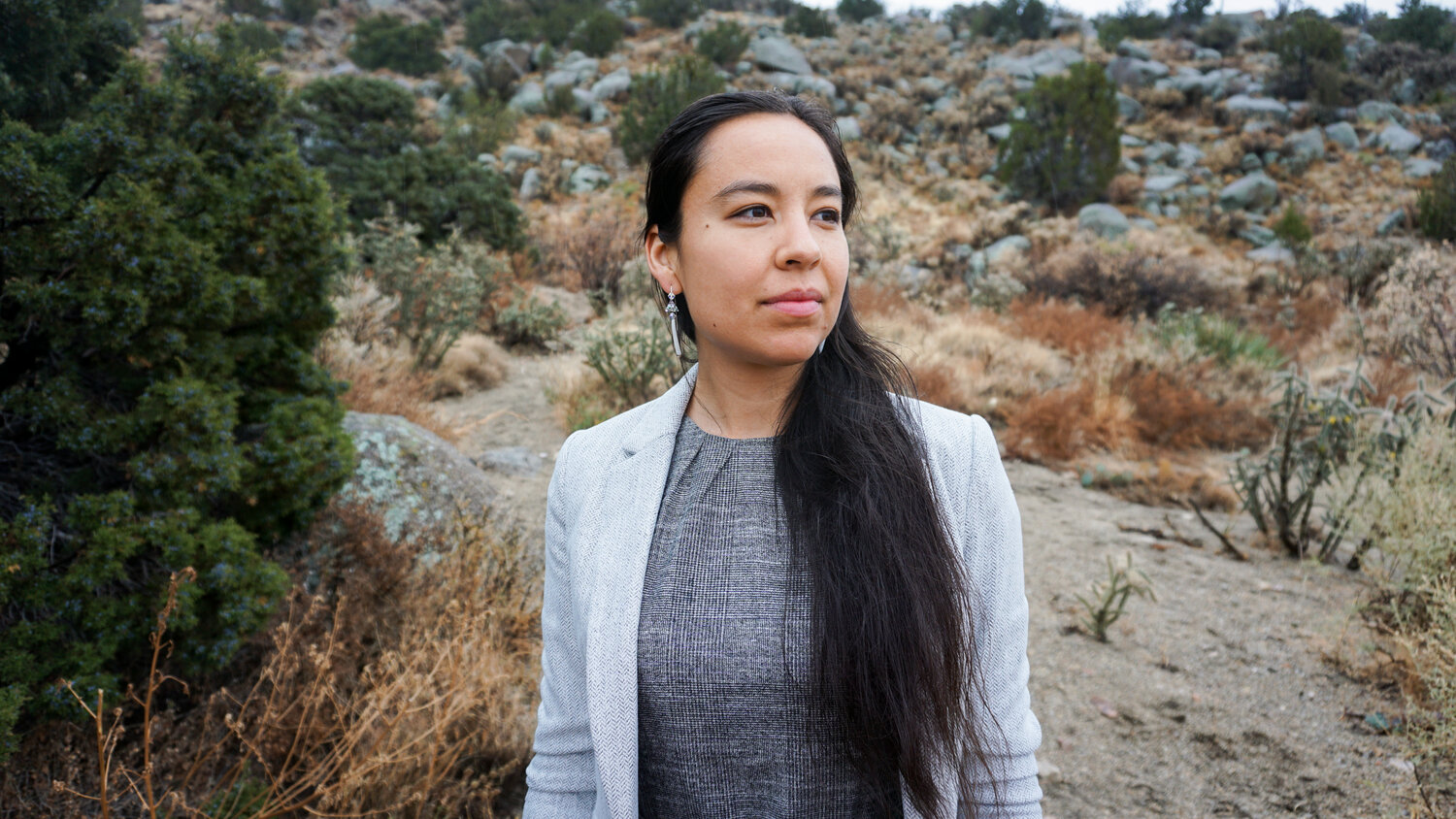Navajo candidate heralds ‘liberation’ from oil
SANTA FE, N. M. – Campaigning for state representative on a climate justice platform, Navajo candidate Lyla June Johnston celebrated seven years of sobriety Dec. 15 by announcing that her own “liberation from deep addiction” goes to show “that we can liberate ourselves from our addiction to oil.”
Johnston kicked off her electoral run for the New Mexico statehouse here on Dec. 12, challenging powerful incumbent Speaker of the House Brian Egolf, Jr. in District 47. Both are running as Democrats.
Noting that the burning of fossil fuels, such as petroleum and coal, causes pollutive greenhouse gas emissions that have led scientists to declare a global climate emergency, Johnston said she will use “every penny” donated to her campaign “to work with New Mexico to face this climate crisis with bravery and grace.”
According to regulations, all campaign contributions must be made outside the period of the state legislative session Jan. 1 to Feb. 20, for the primary elections that will be held June 2. Her campaign will not accept support from corporate political action committees, or PACs.
Johnston also added a “promise to use every single penny to fight for this victory so we can protect and stand behind marginalized communities.”
The drastic shifts in temperature influenced by oil industry activities, such as the fracking in New Mexico’s Permian Basin, hit indigenous communities the hardest, as documented in U.N. negotiations for climate justice.
Johnston said she considers Egolf “the most powerful man in the state, who is actively working to facilitate oil and gas interests.”
She nicked him for allegedly accepting “tens of thousands of dollars from the oil and gas industry,” in return, championing the “Produced Water Act” that allows companies “to sell fracking wastewater back to New Mexicans, specifically for use on our farmlands.”
Professing “great respect for current leadership,” she nonetheless said it “intentionally killed HB 398 earlier in 2019, actively protecting oil companies who extract more than 20,000 barrels a month.”
Johnston, working with an expert advisory council, hopes to unveil an approach to localizing production in 2020 “to lead the world in our liberation from oil addiction.”
She is working from within the proverbial belly of the beast: New Mexico’s Permian Basin is largest oil reserve in the world. Due to the potential emissions from the area in the southeastern part of the state, “the results of this election will have global implications,” she recognizes.
“We can quit oil on our own now in a graceful way that our children will be proud of, or we can keep going and be forced to quit when we are not ready. Now is the time to start working together to be free from this addiction.”
She relates her personal experience with confronting addiction to alcohol and mind-altering substances.
“Sometimes it’s hard to believe that I am free now. My basketball coach and adults around me got me stoned and drunk starting at age 11. It set me up for a lifetime of addiction. Somehow through all of that, I managed to get into Stanford University. When I got there, like most college campuses, it was full of drugs and alcohol as well.”
She graduated with honors and a bachelor’s degree in Environmental Anthropology. Later she went on to earn a master’s with distinction in American Indian Education at the University of New Mexico.
Once she decided she wanted to overcome dependence, she said, “Some wonderful people came my way who helped me see that my addiction was rooted in abuse, times when people took advantage of me. They helped me see my addiction was a symptom of deeper pain, ways of escaping a deeper problem. They helped me heal the root of those issues and told me I would be the best community member I could be if I was sober.”
She says, “In many ways, our society is deeply addicted to oil. Our food, our transportation, our furniture, our clothing, is all brought to us by oil. But we have lived many epochs without oil, and we can do it again.”
Johnston is studying with elders across the continent for a PhD in Indigenous Food Systems at the University of Alaska. She traces her ancestry to Diné (Navajo), Tsétsêhéstâhese (Cheyenne) and European lineage.
Running for office in state legislature is just one of a wide variety of arenas she has entered during her career. Based in Taos, she has traveled widely to speak or perform original song music and poetry, lending her talents to the pipeline resistance at Standing Rock in 2016 and 2017.
(Contact Talli Nauman at talli.nauman@gmail.com)

